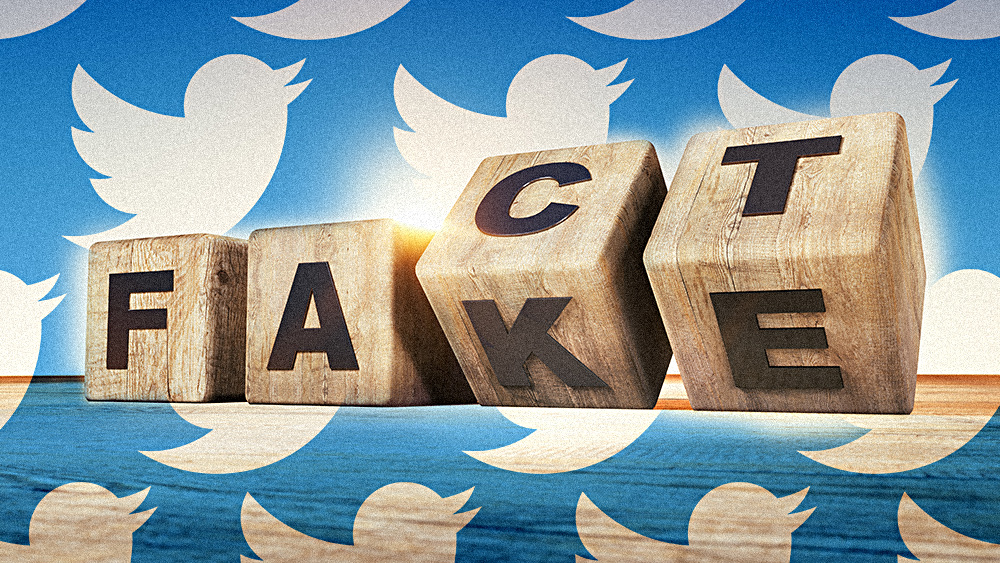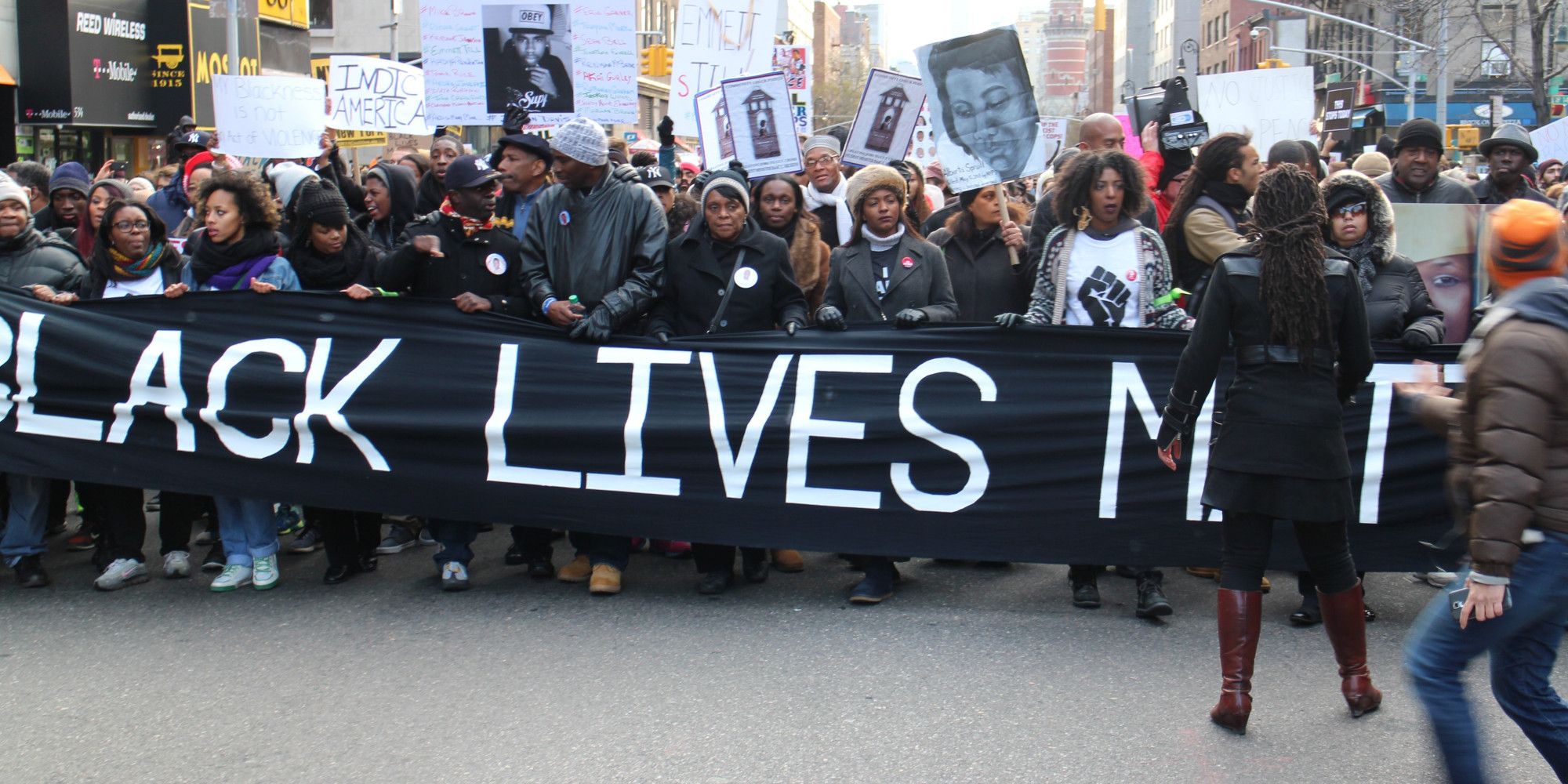Headquarters: Boston, Mass.
Bought By: Haier
Headquarters: Qingdao, China
[caption id="" align="alignnone" width="599"] General Electric ©Jonathan Weiss / Shutterstock.com[/caption]
General Electric ©Jonathan Weiss / Shutterstock.com[/caption]
Many Americans find the brand appealing because it has a “Made in America” stamp on its products, however, the company has been owned by Chinese company Haier since 2016. Haier bought GE for $5.4 billion, a recording breaking sum at that time. The products are still made in the USA, but the decisions are made in China.
It might come as a surprise to many considering just how long the company has been around. However, it just goes to show that when it comes to making money, it really doesn’t matter where the money comes from – as long as it’s coming.
Headquarters: Leawood, Kansas
Bought By: Headquarters: Beijing, China
[caption id="" align="alignnone" width="599"]
AMC might be short for American Multi-Cinema, but in reality, Chinese company Dalian Wanda Group was the majority stakeholder from 2012-2018. This did change slightly when Silver Lake Partners made a $600 million investment back in 2018, but Wanda Group still calls the shots when it comes to making decisions at the executive level.
Next time you’re tucking into your popcorn and getting ready to watch a movie at one of their locations, it might be worth sparing a moment to think about how China helped keep AMC going. It shouldn’t be a surprise, given how much money Chinese investors pour into the movie industry each year.
Headquarters: Smithfield, Virginia
Bought By: Headquarters: Hong Kong
[caption id="" align="alignnone" width="599"]
When it comes to producing pork-based products, Smithfield Foods reigns supreme. The company has been going since 1936 when it was created by Joseph W. Luter and his son. The business grew steadily over the years to become one of the largest in the industry, with over 500 farms in America alone.
Back in 2013, WH Group bought Smithfield foods for the astronomical sum of $4.72 billion. At that time, it was the most expensive acquisition made by a Chinese company in America. So, while Smithfield’s HQ might be in Smithfield, Virginia, the company is actually run from Luohe in Henan province.
Smithfield Foods can be found all over the country in stores like Walmart, so WH Group knew they were making a wise investment. After all, clothes and other wares might go out of fashion, but Americans will always need to be fed.
Headquarters: McLean, Virginia
Bought By: Headquarters: Beijing, China
[caption id="" align="alignnone" width="599"]
That extravagant price made it the most expensive hotel ever sold. Anbang made some big changes to the Astoria, including making some of the rooms into condos. This Chinese company has also looked at buying several other American-owned businesses over the years, including Starwood Resorts.
While The Waldorf might be owned by China, it’s good to know that Hilton has a hand in the day-to-day operations. Hilton itself is a well-established, iconic American brand that the public knows, loves, and trusts – that goes a long way in this day and age. But, Hilton isn’t exactly 1005 American-owned, either.
Headquarters: Armonk, New York
Bought By: Headquarters: Quarry Bay, Hong Kong
[caption id="" align="alignnone" width="599"]
As far as technology companies go, IBM has gone from strength to strength to dominate the market. Since its conception in 1911, the business has gone on to work on computer hardware, software, consulting services, invent the floppy disc, and more. The advancements the company has made are undeniable.
Back in 2005, announced that its Personal Computer Division had been acquired by Lenovo, who paid $1.25 billion for the pleasure. The Chinese business poured a lot of money besides that into IBM too. According to the statement, “Additionally, Lenovo will assume approximately $500 million of net balance sheet liabilities for IBM.”
That kind of money is almost impossible for any business to refuse, even one as famous as IBM. Japan and China are known as technology meccas, so perhaps it makes sense that Lenovo would want to expand its reach even further.
Headquarters: Detroit, Michigan
Bought By: Headquarters: Shanghai, China
[caption id="" align="alignnone" width="599"]
General Motors holds the distinction of being America’s largest automobile manufacturer. As such, it’s also one of the biggest companies of its kind in the entire world, which certainly makes it profitable and appealing.
While General Motors isn’t entirely owned by a Chinese company, it does rely on its partnership with Shanghai Automotive Industry Corp to keep the money rolling in. Both of the companies formed a joint venture in 1998. SAIC sells companies under the General Motors name, even if customers don’t realize it. SAIC has its headquarters in Shanghai, while GM has theirs in Detroit.
At its core, General Motors still remains a very American brand with American values, but every company needs a helping hand sometimes. In this case, it’s a beneficial partnership that allows the brand to experience the best of both worlds.
Headquarters: Luxembourg, Stockholm, and NYC
Bought By: Headquarters: Shenzhen, China
[caption id="" align="alignnone" width="599"]
Spotify is such a part of everyday life now that it’s difficult to remember a time when we couldn’t listen to the songs we want at the drop of a hat. The company was first founded in 2006, providing listeners with a way to stream their favorite music. Although it came from Sweden, Spotify has traveled a lot since then.
Back in 2017, Tencent Holdings and Spotify bought a stake in each other of roughly 10%. This joint venture helped Spotify crack into the Chinese market, while Tencent expanded its already large portfolio. It was a partnership of convenience for Spotify, who wasn’t strong enough at that point to dive into the Chinese market alone.
By partnering up with Tencent, aka one of the largest companies in the world, Spotify put itself at a distinct advantage. Tencent executives also have the uncanny ability to spot a successful venture from a mile off, so to them, it was just another day at the office.
Headquarters: Palo Alto, California
Bought By: Headquarters: Shenzhen, China
[caption id="" align="alignnone" width="599"]
Elon Musk might be the brains behind Tesla and the majority shareholder with 21.7%, but he isn’t the only one pumping money into the automotive company. There are plenty of shareholders, including Tencent Holdings Ltd. Tencent isn’t just into music, but a variety of things.
Tencent is the world’s largest video game company and one of the largest social media companies, making it a force to be reckoned with. In 2019, it had a net income of $95.8 billion, so whatever they’re doing, they’re doing it right. At the moment, the company is still on the up and up.
As for Tesla, the brand is more than just a luxury car manufacturer. The success of the company arguably gave Musk the capital he needed to launch his other projects, including SpaceX. When it comes to technology, we have a lot to thank Tesla for.
Headquarters: Venice, Los Angeles
Bought By: Headquarters: Shenzhen, China
[caption id="" align="alignnone" width="599"]
Taking a picture with a silly filter has never been so popular thanks to Snapchat. The company was founded by Evan Spiegel and Bobby Murphy in 2011, but neither one would have realized how popular it would become. At the moment, Snapchat is valued at over $20 billion.
Back in 2017, Tencent extended its reach to Snapchat, too. The tech giant poured in over $2 billion for a 10% stake in the company, hoping to see a tidy return from its investment. On the flip side, Tencent used its tech expertise to develop the augmented reality Snapchat uses even further.
With the rise in other apps like TikTok, Snapchat isn’t quite as popular as it once was. That doesn’t mean that it isn’t still a jewel in Tencent’s crown though, given how many people have the app on their phones.
Headquarters: Redmond, Washington
Bought By: Headquarters: Tucheng District, New Taipei
[caption id="" align="alignnone" width="599"]
Today, Microsoft Corp is a gargantuan business with several different focuses. However, back in 2016, the company decided to ditch the entry-level feature phone side of its production to FIH Mobile Ltd. The deal brought in $350 million, which is still a relatively small change to Microsoft.
Instead of cutting jobs, all 4,500 Microsoft employees were given the opportunity to transfer to join FIH in the new direction of the business. Microsoft continued to develop other mobile phones though, including the Lumia line and other existing projects as well as partnerships with brands like Acer and Alcatel.
With a company as big as Microsoft, there are always new technologies and new ways to diversify the business to create a broader reach. Microsoft knows this better than anyone else, which is probably why it wasn’t too worried about parting ways with this particular division.
Headquarters: McLean, Virginia
Bought By: Headquarters: Haikou, China
[caption id="" align="alignnone" width="599"]
Hilton Hotels & Resorts has been operating since 1919 thanks to founder Conrad “Nicky” Hilton. From a handful of simple locations, Hilton became a worldwide name with 586 hotels in 85 countries by 2018. Today, Hilton hotels are all over the world.
In 2016, China’s aviation and shipping titan HNA Group paid $6.5 billion for a 25% stake in the hospitality chain, becoming the biggest shareholder. This was the second purchase that year for HNA who also bought Carlson Hotels Inc. in a bid to spread its wings into the hotel industry. At the time of the purchase, Hilton Hilton was worth around $26 billion.
While 25% isn’t 100%, it certainly makes a difference. Hilton will always remain a distinctly American brand thanks to pop culture history, but does it make a difference to guests to know the business isn’t rooted in Uncle Sam anymore? The jury’s out on that one.
Headquarters: New York City
Bought By: Headquarters: Beijing, China
[caption id="" align="alignnone" width="599"]
In recent years, shared workspaces have become more chic and on-trend than ever, especially for freelancers or companies just starting out. WeWork capitalized on this trend when it was conceived 10 years ago. Now, it manages over 4 million square meters of co-working space.
However, it hasn’t always been smooth sailing for the business, who desperately needed some capital in 2016. As a result, Beijing-based company Legend Holdings Corp poured over $430 million into WeWork as a “new partner.” CEO of Legend’s Hony Capital John Zhao said, “Our investment in WeWork is both strategic and obvious.”
The partnership seemed to work, keeping WeWork on the path to success when it looked like it was doomed to fade into obscurity. Cash injections make all the difference, especially when it comes to businesses that are still relatively young.
Headquarters: New York City
Bought By: Headquarters: Beijing, China
[caption id="" align="alignnone" width="599"]
What does a luxury broker of fine and decorative art and a life insurance company have in common? The answer is more complex than you might think. Sotheby’s was founded in London in 1744 before setting up shop in New York City and opening locations around the world.
In 2016, Chinese life insurance company Taikang Life was announced as Sotheby’s newest majority shareholder. Taikang held that position until 2019 when the company was bought by French-Israeli titan Patrick Drahi. It’s unclear what happened to Taikang’s 13.5% stake or if they’re still in partnership with Drahi.
The initial deal was a shock to most people given the quintessentially trans-Atlantic reputation of the business. Sotheby’s has been portrayed in numerous movies and TV shows as a place for the aristocracy and blue blooded gentry to sell their wares. This idea didn’t quite seem to fit its new identity as a Beijing-owned company.
Headquarters: Dallas, Texas
Bought By: Headquarters: Beijing, China
[caption id="" align="alignnone" width="599"]
Starplex never had the same power in the industry as AMC did, with only 34 locations across America. As a result, many Americans never set foot in a Starplex theater because there just weren’t any around. The chain was bought by AMC in 2015 for $175 million, with many locations turned into AMC Classics.
As we discussed earlier, AMC Theaters is largely controlled by the Dalian Wanda Group Corp Ltd. As Starplex faded into obscurity when the last of the theaters were changed over to AMC in 2017, the company was swallowed by AMC and Dalian to become another cog in the machine.
Any remaining Starplex theaters turned into AMC Classic locations, erasing Starplex off the map forever. It was a blow to many fans of the nostalgic chain considering the name had been around since 1995. Movie lovers saw some huge blockbusters at a Starplex over the years.
Headquarters: Irvine, California
Bought By: Fujian Thai Hot Investment Co Ltd
Headquarters: Fujian, China
[caption id="" align="alignnone" width="599"]
Alliance HealthCare Services have provided vital services in the sector for years, which probably made it more appealing to Fujian Thai Hot Investment in 2016. Alliance announced the new partnership after FTHI purchased a 51% stake in the company.
“We are thrilled to welcome our new partner and look forward to collaborating with our new Board Chairman Qisen Huang as well as Mr. Feng and Dr. Zhang as new Board members. Supported by leadership from Fujian Thai Hot, our team remains focused on executing against our long-term strategic growth plan, improving the long-term profitability of our business and enhancing the value proposition we provide to our customers.”
FTHI seems to be on the same page as previous investors and is interested in pushing Alliance forward. After all, with the health care sector being notoriously lucrative, why wouldn’t they want it to become more profitable? It might not suit us, but it certainly suits them.
Headquarters: Bedford, New Hampshire
Bought By: Headquarters: Beijing, China
[caption id="" align="alignnone" width="599"]
Standing on two wheels and whizzing around seemed like something out of Back to the Future a couple of decades ago, unless you own a motorbike. Segways became very popular over the past few years, but when Beijing-based company Ninebot bought Segway in 2015 for $80 million, things got better.
Ninebot was able to push the technology to try and make Segway a bigger presence in the robotics and technology industry. In 2018, plans to move production out of New Hampshire to China were announced, but it was later said that the majority of production would stay in Bedford.
While moving the production out of New Hampshire would’ve been a sorry state of affairs for the local economy, it’s also an almost inevitable move. Production costs in China and overseas are much lower than they are in America, but let’s hope Segway stays true to its roots.
Headquarters: San Francisco, California
Bought By: Headquarters: Beijing, China
[caption id="" align="alignnone" width="599"]
Grabbing a cab was made even easier when Uber rolled around, allowing users to book a ride with just a touch of a button. It was created by Garrett Camp and Travis Kalanick in 2009, before going on to become a multi-billion-dollar business and a household name across the world.
In 2014, Chinese internet-search titan Baidu Inc. made a big investment of over $600 million to help Uber expand into China. The partnership was mutually beneficial, as Baidu wanted to use Uber to grow its mobile payment service. It was a match made in heaven.
On the back of the deal Uber was able to build a solid foundation for its Chinese market, allowing it to continue to grow into the titan it is today. $600 million dollars is a huge amount for any company to utilize.
Headquarters: Peterborough, New Hampshire
Bought By: Headquarters: Nanjing, China; Connecticut, United States; Shanghai, China
[caption id="" align="alignnone" width="599"]
Brookstone Inc. started out as a mail-order business selling special tools that were hard to find in the mid-60s. From there it started selling items like remote control toys, alarm clocks, and much more. As of 2018, there were 34 locations in America.
The company fell on hard times in 2014 when it was forced to file for bankruptcy under Chapter 11, but Chinese companies Sailing Capital and Sanpower came forward and bought it for $173 million. Thankfully, this purchase and a large injection of cash saved the company from going under completely. Brookstone came out of bankruptcy in July 2014.
However, not everything was sunshine and rainbows from thereon in. Four years after the purchase Brookstone filed for bankruptcy again, closing all of its US locations. Now, only airport stores and its website remain. It just goes to show that it takes more than cash to make the dream work.
Headquarters: Chicago, Illinois
Bought By: Headquarters: Quarry Bay, Hong Kong
[caption id="" align="alignnone" width="599"]
Motorola Mobility was formed in 2011 after Motorola split into two different companies. Mobility took control of the consumer electronics side of things, while Motorola Solutions focused on other aspects of the business. In 2012, Google bought Motorola Mobility for $12.5 billion.
However, they didn’t stick around for long. Google sold ownership to Lenovo in 2014 for much less than what they paid for it. Lenovo snapped up the company for just $2.91 billion, marking a loss of around $10 billion for Google. Since making the purchase, Lenovo has stopped making its own smartphones and concentrated on producing Motorola-branded ones.
The purchase and subsequent sale to Lenovo is one of Google’s biggest losses to date, so it’s no wonder that it’s baffling to even the brightest of business minds. Lenovo has continued to run with it and shows no signs of selling up six years later.
Headquarters: Manhattan, New York (formerly)
Bought By: Headquarters: Shenzhen, China
[caption id="" align="alignnone" width="599"]
Being in the online design industry is tough as the competition out there is stiff. Once based in New York City, Fab.com managed to secure a huge investment from Tencent Holdings in 2013 worth around $1 billion. With Tencent, Fab hoped to launch platforms in Asia.
“It’s a way to enter markets through strategic partners who can help mitigate risk and will increase the likelihood of success,” said CEO Jason Goldberg. However, two years later in 2015 the company was bought by PCH International and relaunched as a wellness brand specializing in yoga gear.
These days, the website contains everything from pilates equipment to blogs on health and wellness, making it a far cry from the website it once was. While different isn’t always bad, in this case Fab.com has transformed into something entirely unrecognizable.
Headquarters: San Jose, California (formerly)
Bought By: Headquarters: Beijing, China
[caption id="" align="alignnone" width="599"]
California Grapes International Inc was once a homegrown business, but that all changed when it was bought by China Food Services Corp. Once a company focused on distributing wine, California Grapes faded into obscurity after the purchase was made some years ago for an undisclosed amount.
China Food Services Corp describes itself as being “engaged in marketing, distribution, and selling of food and beverages though-out Asia and the Middle East. It owns and operates Golden Dragon Food & Beverage Import & Export Company of Hong Kong, Ltd.” The company was founded in 1992.
It’s not immediately clear what’s being done with the California Grapes International Inc brand, but perhaps China Food Services has some sort of plan that we aren’t privy to yet. It wouldn’t be the first time we were surprised with something entirely out of left field.
Headquarters: Cleveland, Ohio
Bought By: Headquarters: Beijing, China
[caption id="" align="alignnone" width="599"]
Basketball team the Cleveland Cavaliers burst onto the scene in 1970 with thanks from their sponsors. The team continued to grow in the game over the decades, with backing from Goodyear Tire and Rubber Company. However, in 2019, they got some overseas investors, too.
The Cavaliers signed a deal with Jianhua Huang, a Chinese businessman that previously made deals with the New York Yankees and other teams throughout America. Huang reportedly bought a 15% stake in the Cavaliers. It’s not unusual for sports clubs to have outside investors from overseas.
LeBron James is popular in China, however, he left by the time the deal was finalized. Something tells us that LeBron didn’t mind too much, considering how much money he’s making with the Lakers. Whether the Cavaliers miss him or not is a different story!
Headquarters: San Francisco, United States (formerly)
Bought By: Headquarters: Shanghai, China
[caption id="" align="alignnone" width="599"]
At the peak of its success, Mochi Media was welcoming 140 million monthly users to its website to play a host of games. Rather than catering to the serious gamer, Mochi had many little bitesize activities for users to enjoy. It was owned by Shanda Games, founded by Chen Tianquao, Chrissy Luo, and Chen Danian.
Sadly, even with the backing of Shanda Games, Mochi couldn’t compete with the ever-changing market and began to close down in 2014. The website is no longer in operation, much to the chagrin of fans that loved what it had to offer.
Mochi Media is just one of many companies that have suffered over the last few years, perhaps thanks in part to the ever-growing world of apps and entertainment available on smartphones. All in all, it proved to be a waste of time and money for Shanda Games.
Read more at: Za.Investing.com and InvasionUSA.news.
AMC
 AMC ©Eric Glenn / Shutterstock.com[/caption]
AMC ©Eric Glenn / Shutterstock.com[/caption]
Smithfield Foods
 Smithfield Foods ©Keith Homan / Shutterstock.com[/caption]
Smithfield Foods ©Keith Homan / Shutterstock.com[/caption]
The Waldorf-Astoria Hotel
 The Waldorf-Astoria Hotel ©Sergey Kohl / Shutterstock.com[/caption]
The Waldorf-Astoria Hotel ©Sergey Kohl / Shutterstock.com[/caption]
IBM: Personal Computer Divison
 IBM ©LCV / Shutterstock.com[/caption]
IBM ©LCV / Shutterstock.com[/caption]
General Motors
 General Motors ©Linda Parton / Shutterstock.com[/caption]
General Motors ©Linda Parton / Shutterstock.com[/caption]
Spotify
 Spotify ©norazaminayob / Shutterstock.com[/caption]
Spotify ©norazaminayob / Shutterstock.com[/caption]
Tesla
 Tesla ©Hadrian / Shutterstock.com[/caption]
Tesla ©Hadrian / Shutterstock.com[/caption]
Snapchat
 Snapchat ©dennizn / Shutterstock.com[/caption]
Snapchat ©dennizn / Shutterstock.com[/caption]
Microsoft Corp
 Microsoft Corp (Feature Phone Business) ©mariakray / Shutterstock.com[/caption]
Microsoft Corp (Feature Phone Business) ©mariakray / Shutterstock.com[/caption]
Hilton Hotels
 Hilton Hotels ©Dace Kundrate / Shutterstock.com[/caption]
Hilton Hotels ©Dace Kundrate / Shutterstock.com[/caption]
WeWork
 WeWork ©Mitch Hutchinson / Shutterstock.com[/caption]
WeWork ©Mitch Hutchinson / Shutterstock.com[/caption]
Sotheby’s
 Sotheby's ©mm7 / Shutterstock.com[/caption]
Sotheby's ©mm7 / Shutterstock.com[/caption]
Starplex Cinemas
 Starplex Cinemas @Royal_Window / Twitter.com[/caption]
Starplex Cinemas @Royal_Window / Twitter.com[/caption]
Alliance HealthCare Services Inc
 Alliance HealthCare Services Inc @alliancehealthcareservices / Facebook.com[/caption]
Alliance HealthCare Services Inc @alliancehealthcareservices / Facebook.com[/caption]
Segway Inc
 Segway Inc ©Gints Ivuskans / Shutterstock.com[/caption]
Segway Inc ©Gints Ivuskans / Shutterstock.com[/caption]
Uber Technologies Inc
 Uber China @appleinsder / Twitter.com[/caption]
Uber China @appleinsder / Twitter.com[/caption]
Brookstone Inc
 Brookstone Inc ©Wikimedia.org[/caption]
Brookstone Inc ©Wikimedia.org[/caption]
Motorola Mobility Holdings Inc
 Motorola Mobility Holdings Inc ©testing / Shutterstock.com[/caption]
Motorola Mobility Holdings Inc ©testing / Shutterstock.com[/caption]
Fab.com Inc
 Fab.com Inc @fab.com / Facebook.com[/caption]
Fab.com Inc @fab.com / Facebook.com[/caption]
California Grapes International Inc
 California Grapes International Inc ©Sundry Photography / Shutterstock.com[/caption]
California Grapes International Inc ©Sundry Photography / Shutterstock.com[/caption]
Cleveland Cavaliers
 Cleveland Cavaliers @Cavs / Facebook.com[/caption]
Cleveland Cavaliers @Cavs / Facebook.com[/caption]
Mochi Media Inc
 Mochi Media Inc ©Wikipedia.org[/caption]
Mochi Media Inc ©Wikipedia.org[/caption]






















